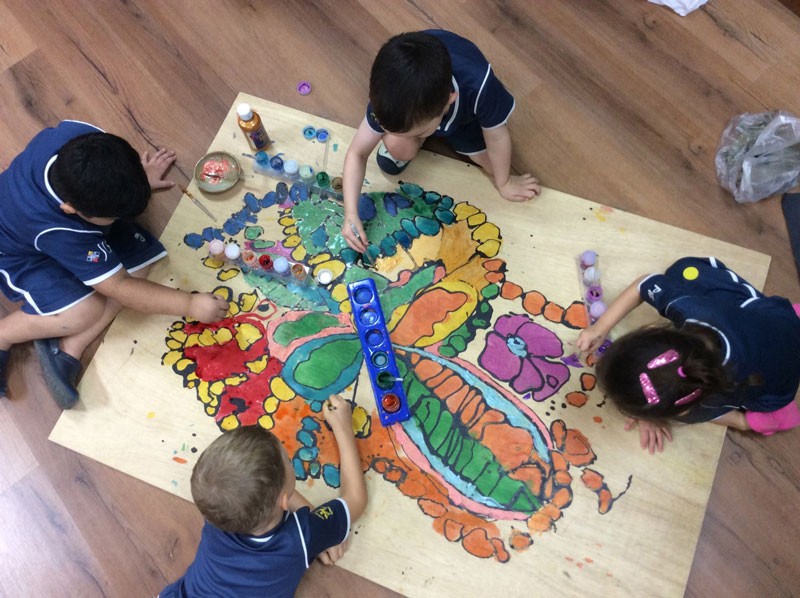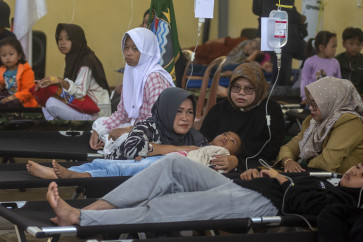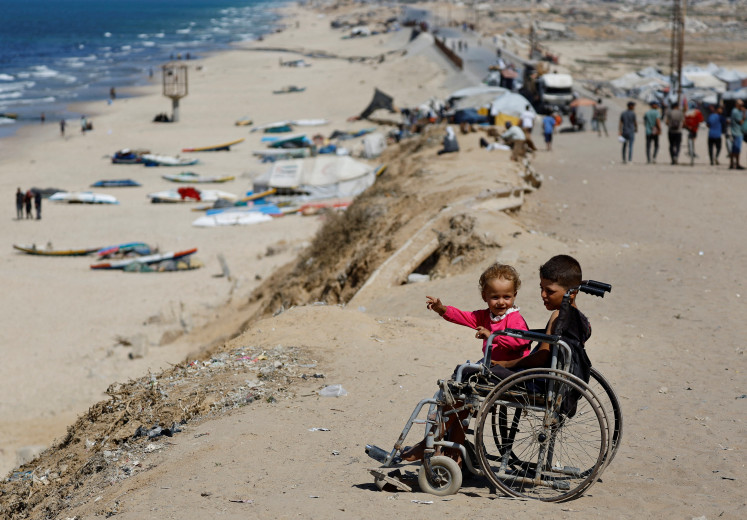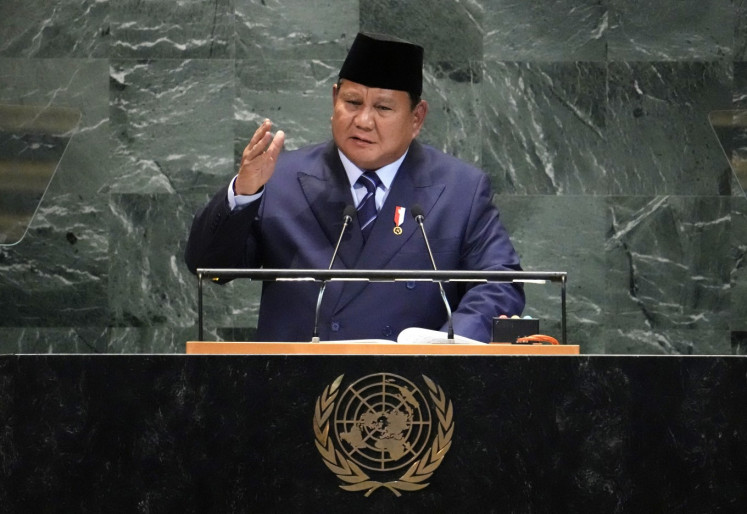Popular Reads
Top Results
Can't find what you're looking for?
View all search resultsPopular Reads
Top Results
Can't find what you're looking for?
View all search resultsThe advantage of individualized early childhood education at JIS
Witnessing children’s optimum growth in all facets of childhood development is what most parents seek. Jakarta Intercultural School (JIS), a leading international school in Jakarta, is capable of assisting parents in doing so with a well-rounded and individualized early childhood education program.
Change text size
Gift Premium Articles
to Anyone
b
Witnessing children’s optimum growth in all facets of childhood development is what most parents seek. Jakarta Intercultural School (JIS), a leading international school in Jakarta, is capable of assisting parents in doing so with a well-rounded and individualized early childhood education program.
Led by renowned education practitioner Elsa H. Donohue, also elementary school principal, the program emphasizes holistic development, which nurtures students not only to excel in cognitive skills but social and emotional skills.
The program is offered in JIS’s Pondok Indah Campus, South Jakarta. It targets children who turn 3 by Sept. 1, to around 6 or so, similar to what you call taman kanak-kanak (kindergarten) in Indonesian.
According to Donohue, who is currently head of division for the Pattimura and Pondok Indah campuses at the JIS, the early childhood program offers a specialized curriculum.
Explaining about the program’s core curriculum, Donohue said that in terms of the cognitive development “that we are targeting, the early education program has four main components: cognitive, socio-emotional, language as well as physical skills, which comprises gross and fine motor skills.”
She said further that the cognitive aspect covers thinking, reasoning, problem-solving and other foundational mathematical skills, while the socio-emotional aspect lays ground for the dispositions that enable effective learning, including the ability to think independently.
The language aspect encourages students to become fluent in at least two languages: English and Indonesian. Finally, the physical aspect seeks to take children away from their digital gadgets and refine their fine and gross motor skills through activities such as running, climbing or visual arts.
Although the core curriculum has stayed the same, the method in which it is delivered is tailored to the personal characteristics of each student – this is why Donohue referred to the program as being “student-centered.” “We want to pay attention to each child’s strengths according to their individual profile,” she explained.
Therefore, the classrooms’ composition is designed in such a way to ensure that each child gets the attention they need.
“We have 15 children in the Early Years 1 and 2 programs [for children aged 3 to 4] and three adults comprising one master teacher and two assistant teachers. In the Early Years 3 program, composed of children aged 5 to 6, we have 18 children and two teachers, assuming that the children are more independent as they become more mature,” said Donohue.
According to her, personalizing the children’s education demands a high degree of professionalism from the teachers, who constantly observe the children, documenting their progress to use that information to plan for subsequent learning engagements.
Lifelong learning
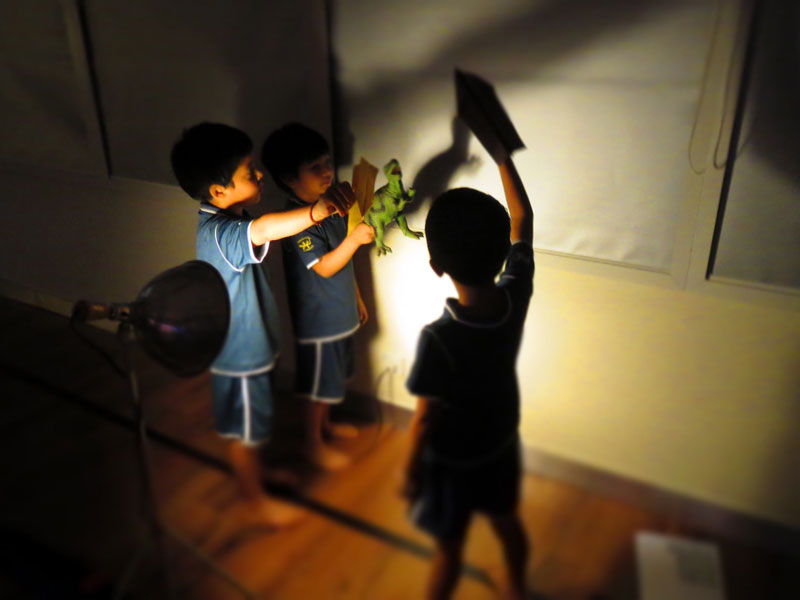
In terms of soft skills that support the learning process, JIS believes in what it calls the four Rs, which stands for: resilience, resourcefulness, reflectiveness and relating.
The thirst for a lifelong learning – essential for both professional and personal success – is something that JIS wants to instill among its students. The value of perseverance, inherent in the pillar of resilience, is something that teachers build among the young ones through their teaching approach. For instance, teachers usually point out what a student has already done well with her drawing before asking her to identify aspects in which she could do better.
“Ooh, I probably colored it too much. Children usually already know areas in which they could do better. By engaging them like this, we will make children feel they have a value,” Donohue explained.
“The biggest outcome [of this approach] is they know how to ask questions and they are confident,” she added.
To further boost the students’ confidence, the early education program also sets aside some time outside its dense and rich main program for children to be involved in performing arts and get onstage.
“We want to, over time, honor the children. We also build confidence by getting them onstage with the drama teacher, where the children can sing and dance and feel free to move about in the spotlight,” she said.
At the end of an academic year, children from the early education program take part in a performance organized by the older children, aged five to seven, with their teachers.
Principal Donohue added that the student’s performance at the end of an academic year was one of the biggest accomplishments embodying all the traits that the program attempted to ingrain within them, in addition to the cognitive aspects inherent in the given core curriculum.
Donohue’s extensive and global experience as a teacher has led to her belief in the power of individualized approach in which teachers adopt inquiry-based teaching methodologies, to effectively help them ensure children’s optimum growth in all facets of childhood development. The methodologies make the learning process more enjoyable, active and interactive, best suited to children of kindergarten school age.
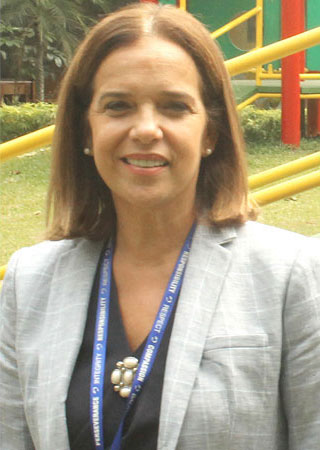 Elsa H. Donohue, Elementary School Principal at Jakarta Interculutural School, Indonesia.
Elsa H. Donohue, Elementary School Principal at Jakarta Interculutural School, Indonesia.Using the methodologies calls for leadership capacity on the part of the teachers, according to Donohue, who has obtained Master’s degrees in curriculum and teaching and educational leadership from Michigan State University.
That’s why she also created and developed a distributed leadership model at JIS and other schools. She herself has a passion for supporting the expansion of leadership capacity throughout the school, with special attention to growing teacher-leaders, middle-level leadership and highly effective teams.
Topics :
JIS, international-school-jakarta, early-years, inquiry-based-learning, leadership-capacity

